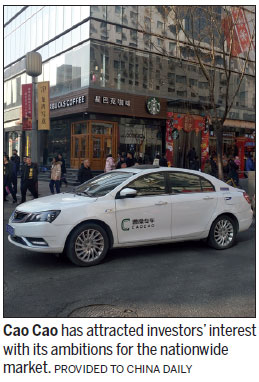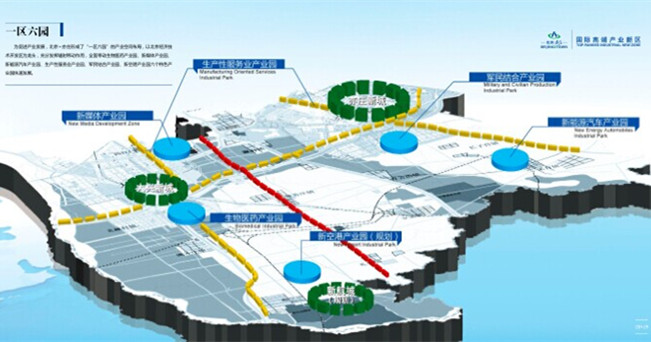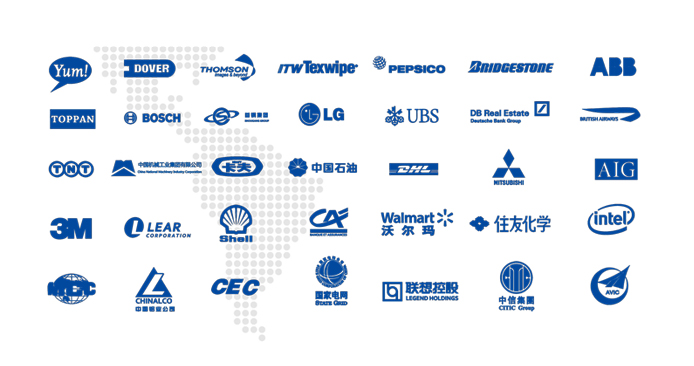Rivals race to meet rising demand for car sharing
( China Daily )
China's booming car-sharing sector has great potential, with demand unlikely to be fully met by current industry players in the short term, according to consultancy firm Roland Berger.
In a recent report, Roland Berger estimated that Chinese people's demand for car rental and ride-hailing would surge to 37 million trips a day this year, about 4.5 times the figure in 2015.
That means the market in 2018 is a goldmine worth 380 billion yuan ($60 billion), the consultancy firm said, and the cake is too large for players in the sector to swallow up in the near term.
The vast market potential is attracting new players to jump on the bandwagon, with the latest being Ctrip, a Chinese online travel service provider.
Ctrip launched its car-sharing business ahead of Spring Festival, with an initial fleet of 10,000 cars, according to Beijing News newspaper. The service is now available in megacities, including Beijing, Shanghai and Guangzhou, and will be expanded to more cities soon.
Wang Yuchen, CEO of Ctrip's car-sharing unit, said the company used to focus on the daily or even long-term car rental business, but demand for car use over shorter periods is also huge.
Earlier this month, Chinese ride-hailing company Didi Chuxing announced plans to partner with automakers, charging network operators and after-sales service providers to build an open car-sharing platform.
The 12 carmakers involved include leading new energy car producers BAIC BJEV and BYD, as well as the international Renault-Nissan-Mitsubishi Alliance.

Ogi Redzic, senior vice-president of Connected Vehicles and Mobility Services at Renault-Nissan-Mitsubishi, said the potential business and technology opportunities the alliance will explore with Didi were "quite promising".
In December, Mobike, a major Chinese bike-sharing operator, set up a car-sharing business with registered capital of 20 million yuan in Southwest China's Guizhou province.
It said that users will be able to unlock, lock and park cars and make payments by using the same app they use to rent shared bikes.
In January, Meituan-Dianping, China's largest online platform for ordering food, buying movie tickets, and booking restaurants, announced that it would soon launch its own car-hailing service in seven Chinese cities after testing its related app in Nanjing, Jiangsu province, for about 10 months.
Investors are bullish about the sector as well. In January, Chinese automaker Geely announced its ride-hailing brand Cao Cao had finished its first round of funding, raising 1 billion yuan.
"The completion of the Series A round of funding represents the market's confidence in us," said Liu Jinliang, Cao Cao's chairman.
The ride-hailing platform is the first of its kind to be invested in and operated by a Chinese automotive company.
It now offers services in nearly 20 cities and plans to expand into more this year.
Cinese customers are enthusiastic about such services as well, as shown by a Roland Berger survey that found that 71 percent of respondents are willing to pay more for better mobility services in China.
lifusheng@chinadaily.com.cn
(China Daily 02/26/2018 page19)
 The Area with Six Parks
The Area with Six Parks Global Top 500
Global Top 500